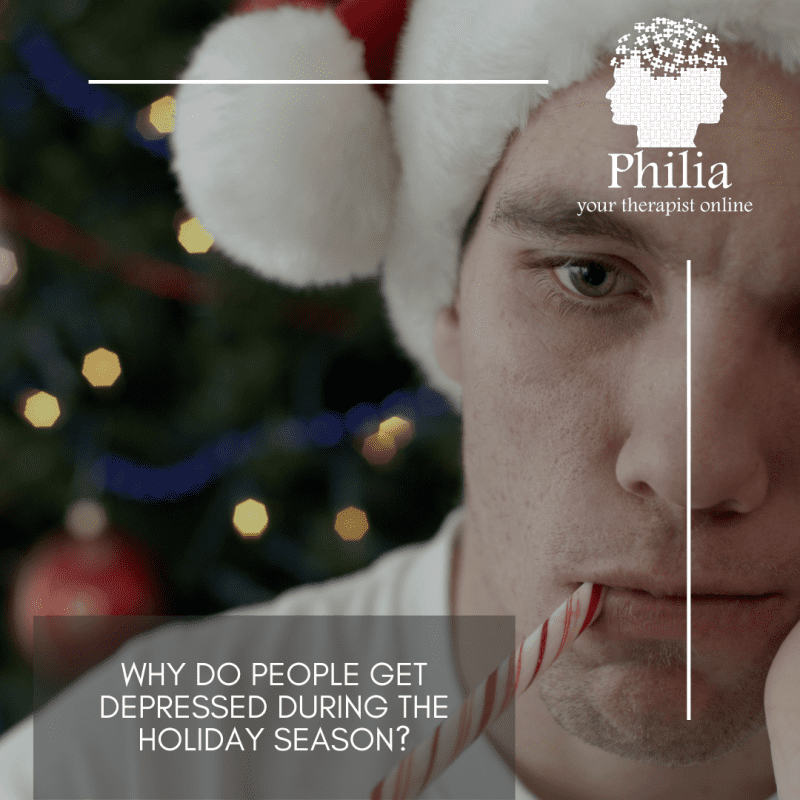For a lot of people, the holidays are not only about family reunions, happiness, and gifts, but it is also a time that can leave them feeling sad and empty. This may be the result of a combination of environmental, neurobiological, and social factors.
During the winter months, sun exposure decreases, and the days become shorter. This can contribute to changes in our mood as it alters sleep-wake cycles and the regulation of our emotions.
December is also a time of the year when people tend to have self-reflective moments where they take stock of everything that happened during the year. The losses that they may have experienced in terms of work, breakups, family members, friends, or not being able to spend the holidays with family due to distance or conflicts.
On the other hand, in families where there are disagreements and bad relationships, there may be a sense of obligation to have to get along with everyone, there may be expectations and hope that problems can be resolved, or a tense environment for fear that these may arise.
This temporary negative mood can be affected by external stimuli such as Christmas decorations, music, gifts, or family gatherings. Some symptoms may be insomnia, sadness, anxiety, lack of appetite, irritability, or bad mood.
In order to develop some strategies that may help you cope with this time of the year, it is important, as a first step, to be aware and identify those things that cause you discomfort during Christmas time. You might not be able to change many of these situations, but you can change the way you deal with them. These strategies can be:
- To reduce stress, you can start by being aware and honest with yourself about the number of social commitments that you can handle, the number of social events that you can attend, what your budget and possibility to buy gifts is, as well as, if you can afford to visit family or friends.
- If it is not possible for you to reunite with your loved ones either due to loss or because your place of residence is not the same as your family’s, you can create your own traditions such as going to your favorite restaurant, ordering dinner, and watching a movie at home, going to a friend’s house or taking a short getaway trip to see new places, but try to make it something that excites you and gives you hope.
- One of the strategies that is available throughout the year and is one of the most effective is to engage in physical activity, this will help you raise your endorphin levels and improve your mood.
- Be careful with what you eat, all bodies react in different ways to sugar, caffeine, sweeteners, alcohol, pastry sweets, etc. Although none of these are responsible for causing your discomfort in the winter times, they can contribute to making it worse.
- Take care of your hours of sleep. Not having quality hours of sleep or sleeping little can make you feel exhausted in the afternoon or in a bad mood in the morning.
- Be patient and self-compassionate with yourself. Remember that everything passes and that we all react differently. Feeling sad on these dates does not make you a bitter, weird, or resentful person. Take your time, go at your own pace, and don’t force yourself to do something you don’t want to do.
Although these strategies can help you feel better during these times, it is important that you know yourself well enough to know what is really causing you discomfort, as well as to identify those people who contribute to it. We recommend that you seek psychological guidance, not only to discover the root causes of this discomfort but also to find the strategies that are right for you. Remember that at Philia we have trained professionals who can support you in acquiring the strategies you need. We look forward to hearing from you!


Leave A Comment